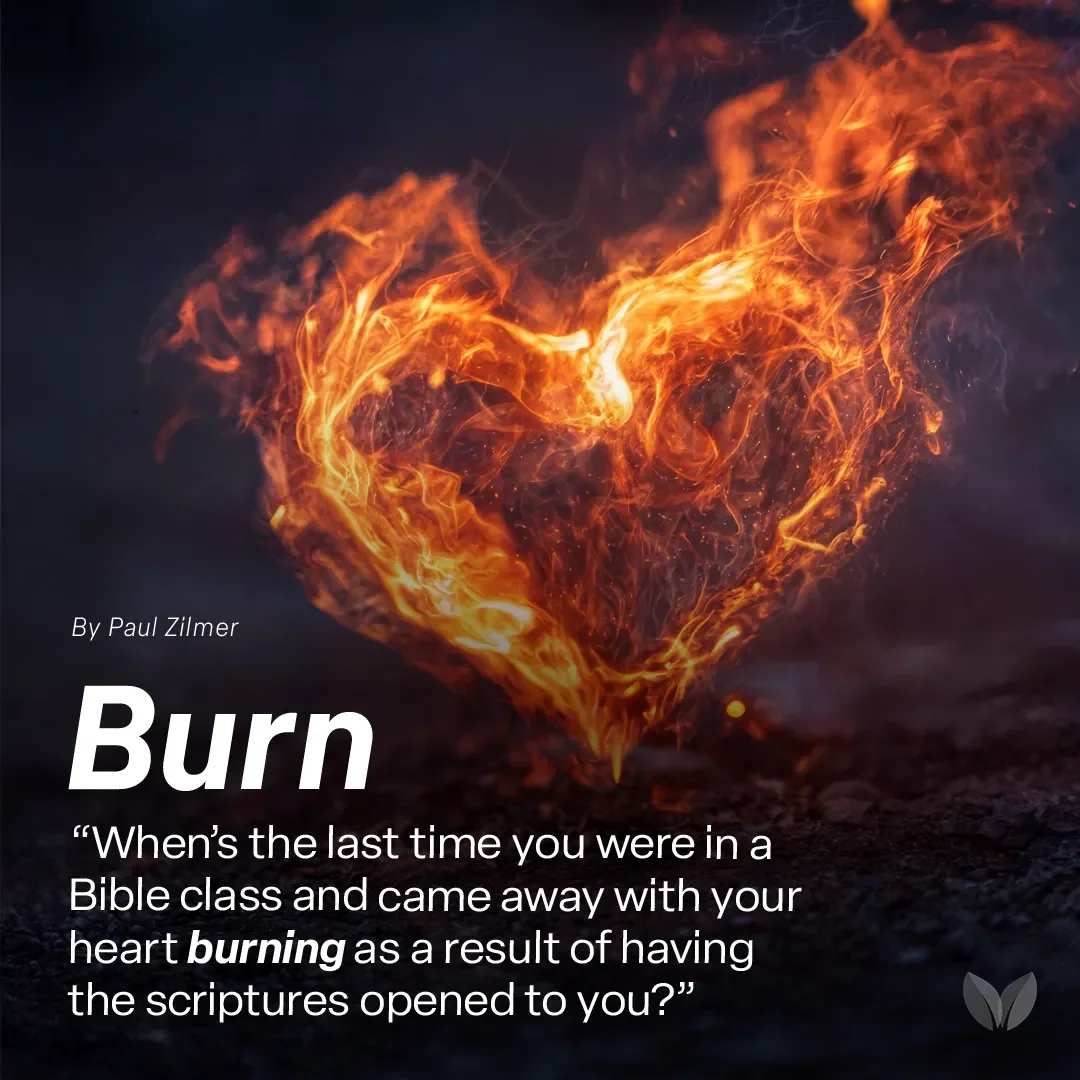Burn
The day Jesus was raised, he made several appearances to small numbers of his followers. One of these was joining a pair of disciples walking from Jerusalem to the village of Emmaus. You remember the story. They didn’t recognize him, but he conducted a Bible class as they walked, drawing out of the Old Testament scriptures the necessity for the Messiah to die and be raised. They invited him to have supper with them, and finally their eyes were opened to see who he was. Then poof! He was gone. Their reaction is worth thinking about:
They said to each other, “Did not our hearts burn within us while he talked to us on the road, while he opened to us the Scriptures?” (Luke 24:32)
If it happened to you, would this be your first thought? Not gaping in amazement over the disappearance. Not puzzling at how they could have failed to recognize him. Their first thought was of the astounding Bible class, and how powerfully it moved them.
When’s the last time you were in a Bible class and came away with your heart burning as a result of having the scriptures opened to you?
This isn’t the only case where the word of God produced this kind of reaction. The prophet Jeremiah suffered a lot for speaking the word, so he decided he would stop:
If I say, “I will not mention him, or speak any more in his name,” there is in my heart as it were a burning fire shut up in my bones, and I am weary with holding it in, and I cannot. (Jeremiah 20:9)
David had a similar experience, in his case pondering his mortality:
I was mute and silent; I held my peace to no avail, and my distress grew worse. My heart became hot within me. As I mused, the fire burned; then I spoke with my tongue: “O LORD, make me know my end and what is the measure of my days; let me know how fleeting I am! (Psalm 39:2-4)
The burning in David compelled him to open his mouth in prayer. In Jeremiah it compelled him to open his mouth to preach and to warn. The apostles experienced something like this too:
But Peter and John answered them, “Whether it is right in the sight of God to listen to you rather than to God, you must judge, for we cannot but speak of what we have seen and heard.” (Acts 4:19-20)
For if I preach the gospel, that gives me no ground for boasting. For necessity is laid upon me. Woe to me if I do not preach the gospel! (1 Corinthians 9:16)
All of these, when they saw and heard and understood the word of God, couldn’t possibly keep it in. They felt they would explode if they tried. Was it the same for the two on the road to Emmaus? I think so. They felt the burning inside, and what did they immediately do? They walked all the way back to Jerusalem to tell the other disciples about it.
Probably for most of us, that burning feeling comes to us more often early in our journey of discipleship. When we’re first learning, first truly grasping, the wonderful hope given us by our God and the Lord Jesus. When we’re first seeing the pieces from Old and New Testaments come together, and feeling the amazement. But even if it’s less frequent as we get further along, we can still feel that burning from time to time as we finally understand something we’ve missed before.
And what’s the appropriate reaction when it happens? Open our mouth! In prayer, in praise, in sharing with others the compelling necessity to speak the word of God.
Love, Paul


